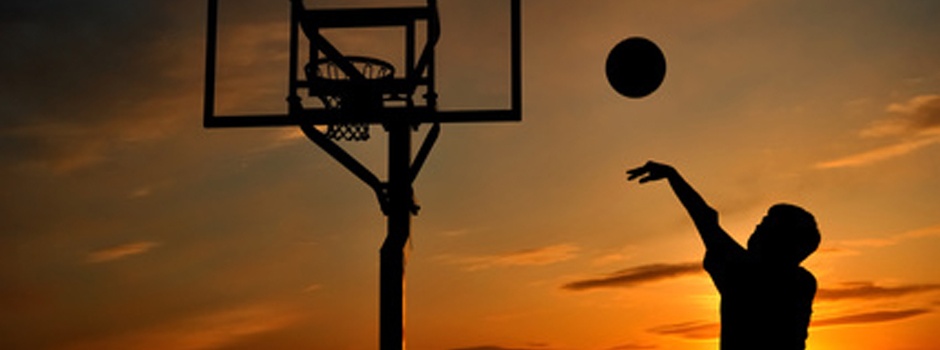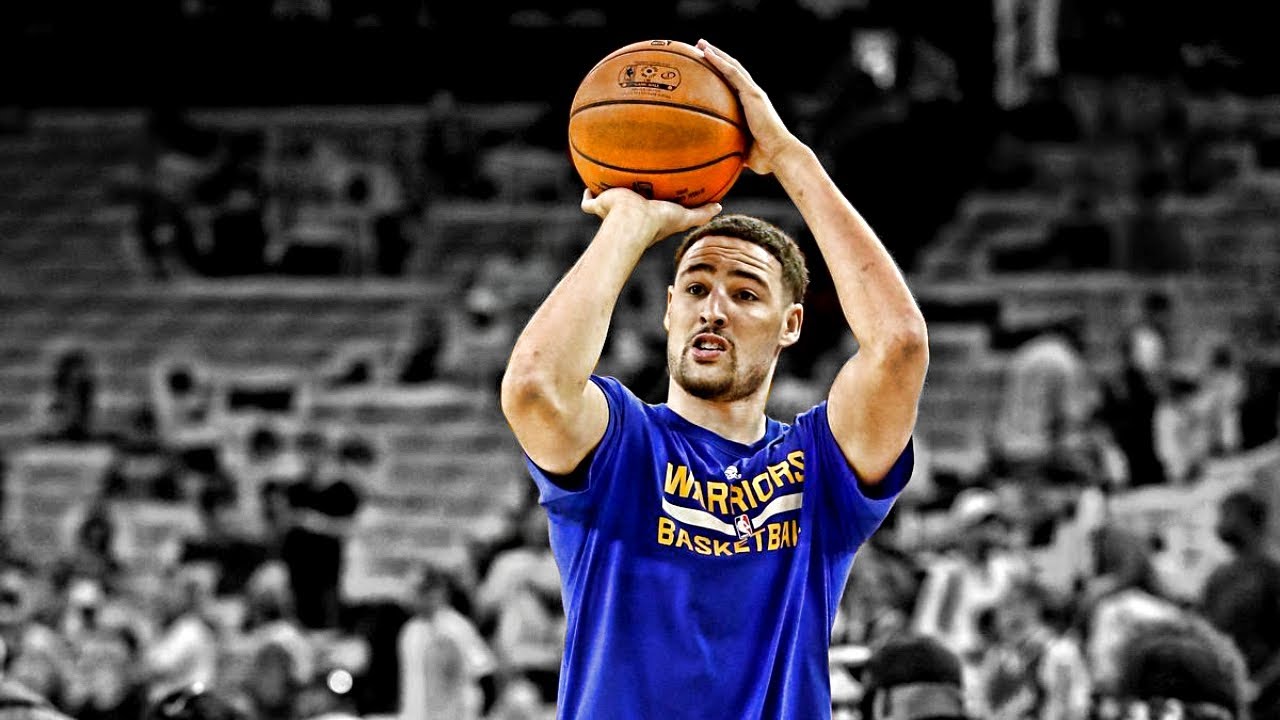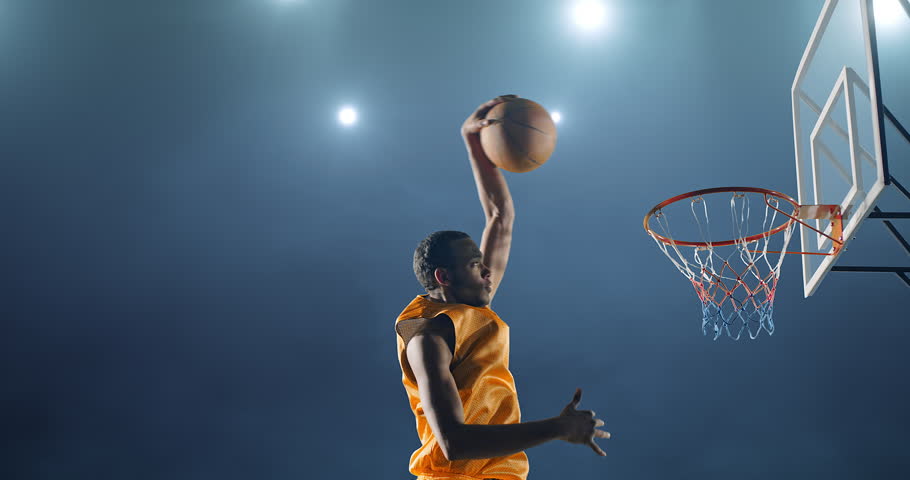How Intentional Attention Can Improve Your Game
We are thrilled to work with sports psychology coach, Stu Singer to expand our and your knowledge within performance psychology! Below is his 2nd article submitted.

In my first article for Dr. Dish I tried to help frame how we should understand performance psychology. The greatest performing athletes don’t have different brains than anyone else, and, in fact, will sometimes battle the same exact moments of questioning of confidence, feeling too much pressure, doubt, or anxiousness.
But, what they most likely have developed is a strong clarity of what they should be giving their attention to in that specific moment. And, they’ve worked on the skill of blocking out everything else but that specific place for their attention. We can call this intentional attention.
A Basketball Example - klay Thompson

For this article I want to explain this skill through the real life example of Klay Thompson’s recent 52 point game in only 26 minutes. Thompson set the single game record for made 3’s by shooting almost 60% from beyond the arc. However, in the 7 games prior to that night he shot 14% (5 of 36). So, what mental lesson can we take from this? Is he a 14% shooter, or is he an almost 60% shooter. The answer is neither, and that in this case the percentages lie!!
He is a career 42% three-point shooter. That number is the truth. That number is the one he can ultimately trust. That one is created over hundreds of games, thousands of shots, and specific preparation.
But here is what I work with all too often – that players, coaches, and parents get caught up in the outcome during the middle of a game, or during a stretch of games. If on the high end of the range – he/she is great, but if on the low end – he/she is terrible. What everyone needs to understand is neither is true.
Be Intentional
Instead I teach the athletes I work with to be highly intentional with their focus of attention. What does this mean? This means to that we lock our attention into the things we control – our preparation, our fundamentals, how we work to set up and find our shots, shot selection, footwork, communication, etc.
These things are within our control, and we can learn to give them our attention – INTENTIONALY!! When we do we feel a sense calm and control because we know we can return to these again and again.
Stay Focused Through Frustration
Now, here is the truth – we can do these things and the ball still may not fall. When this happens is it natural that first emotional reaction may be frustration? Of course!
But, that is when intentional attention comes into play. We can learn to move our place of focus from the frustration (remember whether the ball goes is or not is an “outcome” and we don’t have ultimate control over it), and instead back to this intentional attention. We do this over and over again.
When we do this we build a strong, habitual, patterned, pathway back to a proactive and process focused mind.

Conclusion
What I can all but guarantee you is that Klay Thompson did not change his attention, his focus, his routine, and his process whether he was shooting good or bad. He understands his role, and his skill and trusts in the fact that by the end of the season his percentage will again hover around that career 42%, so he keeps shooting with total belief and confidence.
You can learn to do this to.
The concept is simple, but the mental reps it takes to get there are not easy. Do the work!
For more info general on Dr. Dish basketball shooting machines, click here.
___________________________________________________________________
Stu Singer is the Director of Performance Psychology for the WNBA’s Washington Mystics, and the performance psychology coach for the University of Maryland Women’s Basketball team, Fordham University Women’s Basketball team, Rice University, and the Connecticut Sun among others. He has worked with Men's National Team and MLS soccer players, USA Basketball Team members, and Olympic Gold Medalists.
Stu served an integral role in helping the University of Maryland reach back to back Final Fours in 2014 and 2015. His work focuses specifically on 'the HOW' in the development of the mental skills needed for his athletes to regulate their emotions and attention in high-performance environments. He is the creator of the DoSo app https://appsto.re/us/O-mOgb.i
And the WellPerformance On-line Sports Psychology Program: http://wellperformance.pagedemo.co/
- Basketball Drills (440)
- Basketball Shooting Drills (228)
- Basketball Shooting Machine (222)
- Dr. Dish (194)
- Basketball Coaching (157)
- Coach Tony Miller (113)
- Basketball Tips (102)
- Team Drills (98)
- Dr. Dish CT (97)
- College Basketball (87)
- Basketball Training (77)
- Off-Season (70)
- Dr. Dish Success Stories (65)
- Dr. Dish Home (64)
- High School Basketball (56)
- Skill Builder (56)
- Women's Basketball (43)
- Drill of the Week (40)
- Division 1 (38)
- NBA (38)
- Coach Mason (36)
- Player Development (35)
- Basketball Quotes (33)
- Youth Basketball Drills (30)
- Ball Handling (28)
- Coaching Philosophy (27)
- Success Stories (26)
- Basketball Training Equipment (25)
- WNBA (25)
- Mental Training (24)
- Basketball Event (21)
- NCAA (19)
- Training Management System (19)
- Basketball Clinics (18)
- Basketball Practice Plan (18)
- FCLTY (18)
- At Home Training (17)
- Players App (17)
- Ryan Razooky (17)
- Team Inspiration (17)
- FIBA drills (16)
- Giveaway (16)
- Maximize Your Season (16)
- Positionless Basketball (16)
- Basketball Camp (15)
- CT+ (14)
- Europe (14)
- Fundamentals (14)
- Interview (14)
- Jordan Lawley (14)
- iC3 Shot Trainer (14)
- AAU (12)
- All-Star+ (12)
- Basketball Fundraising (12)
- Basketball Post Drills (12)
- Be Better Everyday (12)
- Girls Basketball (12)
- Joe Abunassar (12)
- Skylar Diggins-Smith (12)
- Special Jennings (11)
- Jake Rauchbach (10)
- March Madness (10)
- Motivation (10)
- Shane Hennen (10)
- Trainers (10)
- Cameron Brink (9)
- Debbie Antonelli (9)
- FIBA (9)
- John Townsend (9)
- Kyle Travis (9)
- Louisville (9)
- Mindfulness (9)
- New 2022 Features (9)
- Pure Sweat (9)
- Bjorn Broman (8)
- FastModel (8)
- Milwaukee (8)
- Press Release (8)
- Zia Cooke (8)
- Byron Scott (7)
- DJ Sackmann (7)
- Lindsay Whalen (7)
- Rebel+ (7)
- Culture (6)
- D1 Drills (6)
- Midwest 3 on 3 (6)
- summer of better (6)
- Boys Basketball (5)
- Dish Lab (5)
- Dr. Dish vs The Gun (5)
- EuroLeague (5)
- Florida Gators (5)
- Mike Dunn (5)
- Mike Lee (5)
- Multiplayer Mode (5)
- Pat the Roc (5)
- Q&A (5)
- Special Olympics (5)
- UNLV (5)
- Allie Quigley (4)
- Amy Hunt Home Business Expert (4)
- Greg Stiemsma (4)
- Luka Doncic (4)
- Mentorship (4)
- Train For Next (4)
- Virtual Camp (4)
- 5-Out Offense Actions (3)
- All In (3)
- Athletic Directors (3)
- Basketball Recruiting (3)
- Catalyst Training (3)
- Greece (3)
- Holidays (3)
- Push Beyond (3)
- Spencer Levy (3)
- Strength Training (3)
- Trade-In Program (3)
- preseason (3)
- Assembly (2)
- Dr. Dish TV (2)
- Duke University (2)
- Eurohoops (2)
- Final 4 (2)
- France (2)
- George "Gee" Gervin Jr. (2)
- HCTC (2)
- Head Coach Training Center (2)
- Mathieu Delarche (2)
- Maurice Riddick (2)
- Midwest Basketball Training (2)
- Moris Hadzija (2)
- NBA All-Star Weekend (2)
- NWBA (2)
- Professional Development (2)
- Small Sided Game (2)
- Tyty Washington (2)
- jrue holiday (2)
- post season (2)
- Accessories (1)
- Analytics (1)
- Australia (1)
- Basketball Training Machine (1)
- Brett Brown (1)
- Carlos Frade (1)
- Championship Guide (1)
- Chris Johnson (1)
- Courts of the World (1)
- Curro Segura (1)
- Customer Success (1)
- Dimitri Lauwers (1)
- Father's Day (1)
- Hoops Factory (1)
- Jaume Comas (1)
- Jesus Lazard (1)
- Joerik Michiels (1)
- Knockdown (1)
- Leadership (1)
- National Night Out (1)
- National Teams (1)
- Offline Mode (1)
- Rising Coaches (1)
- Shot Trainer (1)
- Sports Boosters (1)
- Statistics (1)
- Switzerland (1)
- Tony Delk (1)
- Tutorial (1)
- Wheelchair Basketball (1)
- affordable (1)
- endorsement (1)
- green light (1)
- spain (1)
- February 2026 (1)
- January 2026 (3)
- December 2025 (3)
- November 2025 (8)
- October 2025 (7)
- September 2025 (9)
- August 2025 (19)
- July 2025 (20)
- June 2025 (24)
- May 2025 (11)
- April 2025 (6)
- March 2025 (12)
- February 2025 (6)
- January 2025 (6)
- December 2024 (14)
- November 2024 (13)
- October 2024 (16)
- September 2024 (12)
- August 2024 (13)
- July 2024 (9)
- June 2024 (7)
- May 2024 (10)
- April 2024 (12)
- March 2024 (15)
- February 2024 (10)
- January 2024 (10)
- December 2023 (7)
- November 2023 (9)
- October 2023 (14)
- September 2023 (18)
- August 2023 (10)
- July 2023 (9)
- June 2023 (20)
- May 2023 (10)
- April 2023 (8)
- March 2023 (14)
- February 2023 (8)
- January 2023 (12)
- December 2022 (13)
- November 2022 (9)
- October 2022 (11)
- September 2022 (12)
- August 2022 (14)
- July 2022 (18)
- June 2022 (18)
- May 2022 (16)
- April 2022 (16)
- March 2022 (19)
- February 2022 (14)
- January 2022 (10)
- December 2021 (20)
- November 2021 (14)
- October 2021 (19)
- September 2021 (16)
- August 2021 (14)
- July 2021 (16)
- June 2021 (17)
- May 2021 (18)
- April 2021 (15)
- March 2021 (19)
- February 2021 (15)
- January 2021 (20)
- December 2020 (12)
- November 2020 (15)
- October 2020 (15)
- September 2020 (15)
- August 2020 (13)
- July 2020 (14)
- June 2020 (17)
- May 2020 (14)
- April 2020 (13)
- March 2020 (9)
- February 2020 (11)
- January 2020 (11)
- December 2019 (11)
- November 2019 (7)
- October 2019 (11)
- September 2019 (16)
- August 2019 (13)
- July 2019 (9)
- June 2019 (10)
- May 2019 (11)
- April 2019 (7)
- March 2019 (9)
- February 2019 (7)
- January 2019 (6)
- December 2018 (13)
- November 2018 (11)
- October 2018 (12)
- September 2018 (13)
- August 2018 (15)
- July 2018 (10)
- June 2018 (6)
- May 2018 (7)
- April 2018 (7)
- March 2018 (8)
- February 2018 (6)
- January 2018 (7)
- December 2017 (8)
- November 2017 (9)
- October 2017 (9)
- September 2017 (5)
- August 2017 (9)
- July 2017 (10)
- June 2017 (11)
- May 2017 (6)
- April 2017 (6)
- March 2017 (12)
- February 2017 (10)
- January 2017 (15)
- December 2016 (12)
- November 2016 (13)
- October 2016 (12)
- September 2016 (10)
- August 2016 (10)
- July 2016 (8)
- June 2016 (5)
- May 2016 (4)
- April 2016 (8)
- March 2016 (9)
- February 2016 (7)
- January 2016 (6)
- December 2015 (8)
- November 2015 (3)
- October 2015 (1)
- September 2015 (1)
- August 2015 (2)
- June 2015 (1)
- May 2015 (4)
- April 2015 (1)
